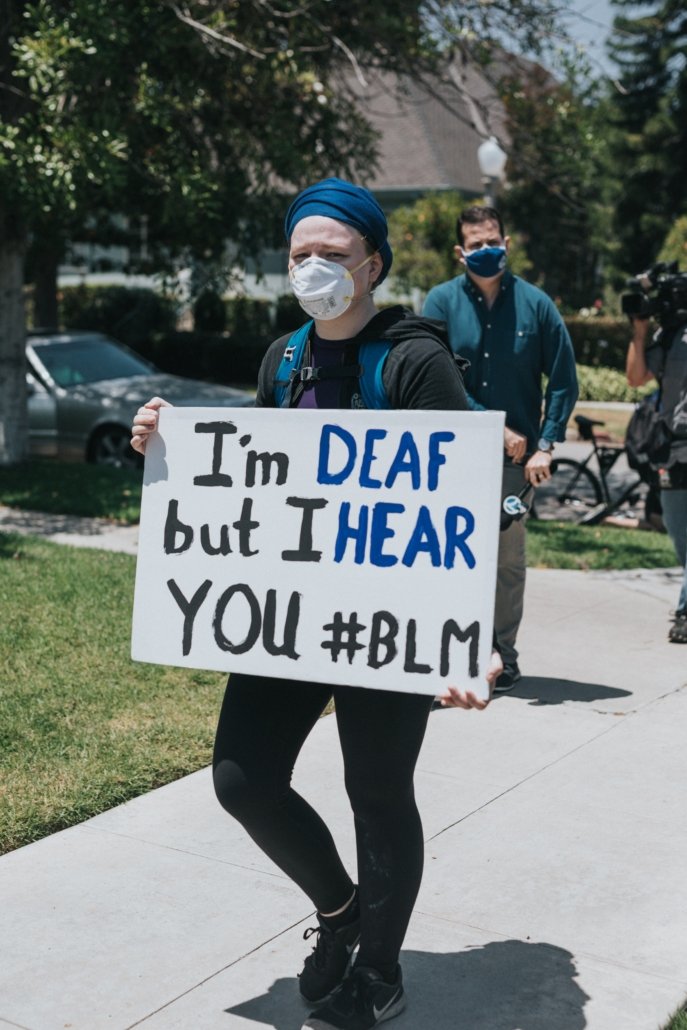By: Amira Barre, Mission Partners Research and Engagement Coordinator
Recording of “Building Trust and Empathy in Communication”
Highlights from “Building Trust and Empathy in Communication”
In our last community conversation on impact investing, we discussed the importance for business leaders to have a values-centered approach at driving equitable outcomes by putting money where their heart is. This segued into our next conversation with Jeremy Fletcher, Assistant Professor at the University of South Alabama and Veteran Peer Support Advisor. He pulled from his lived experiences growing up in poverty and throughout his life—in the military and in sports—to influence the values of trust and empathy, which he says should be at the core of all Justice, Equity, Diversity, and Inclusion (J.E.D.I.) work.
Here is a recap of this community conversation hosted on August 6 titled Building Trust and Empathy in Communication.
Shared Trauma, Collective Healing
It takes just one adverse childhood experience to lead to tremendous implications for health and mental health, and if these traumas aren’t addressed, it will lead to a cycle of generational trauma. We see this happening on a large scale right now in our country due to the generational trauma caused by centuries of anti-Black systemic and structural racism. Trauma is a shared experience. The levels to which we each have experienced racial trauma certainly are not the same, but each and every one of us has some sort of trauma based on our individual experiences and identities. While the trauma and healing may look different for each of us, the commonality is the need for trust, caring, compassion and understanding in order to heal. We can all use shared experiences to build these bonds of trust.
The lessons we can learn to experience healing are to:
Realize that pain is a very real human experience;
Understand healing best occurs in the context of a relationship with other people, and people who feel isolated will experience a greater degree of suffering; and
Our humanity is universal.
Connecting the Heart, Mind, and Senses
The existing disconnect between many issues and solutions we attempt in our J.E.D.I. work is that we are not leading from the heart, mind, and senses. As leaders, if we aren’t taking the time to explore the inconsistencies between our own values and actions, we will be perceived as dishonest, and honesty is the root and basis of trust. We must first explore our own values and decide which actions align with those values. This work engages deep emotional levels that cause us to examine our core identities, and it takes courageous efforts to delve into our own trauma and the trauma of others with the intent to grow and expand. When we are connected to our heart, our mind will follow.
If we think about these terms like the heart, mind, and senses of an organization, it would look like the following:
Heart: Values
Mind: Strategy
Senses/Nerves: Community Connection
The question becomes, are you integrating your strategy with what you hear and learn from the community you are working with? Emotions are the energy of change, so choosing actions that deeply connect with our internally driven motivation is ultimately the work that we must engage in. When we engage in this work, we can relate to those who have suffered, and that is the basis of empathy.
The Importance of Word Choice
The words you choose to communicate with your audience can increase trust between you. Whether you have a successful conversation or a missed opportunity is largely dependent on how much your audience trusts you. You first have to understand your audience, their values, and what’s important to them to build credibility and establish trust. People tend to respond favorably when you choose strength-based language vs. deficit-based language, but they will definitely listen if you are speaking their language. For example, if your audience is a group of competitive, athletic, and prideful people, you may have more success talking about “performance optimization” rather than “injury prevention,” while the content of your message may be the same, the words you use to describe the same process are different. One set of words is perceived positively by this group (performance) vs. the latter (injury), which is something they may not even think is relevant to them.
The key is to toe the line between progress and reality. In J.E.D.I. work, we have come a long way, but we are far from finished. By meeting your audience where they are, you might open up avenues for conversation and common understanding.
A Path Forward
We all have inner work to be done. A path forward requires steps toward opening up to your difficult thoughts, sensations, and allowing you to be present. This allows you to feel and experience everything—the good, bad, and ugly—while still living in reality. Those moments of tension and pressure and the difficult conversations around racism and structural change are part of the path forward and should not deter anti-racism work.
Resources Shared:
What’s Next?
At Mission Partners, we are intentional about centering the J.E.D.I. principles of justice, equity, diversity, and inclusion in all we do. We conduct regular reviews and updates to our own policies, practices, and messaging to ensure we are doing our part to advance equity within our organization. We have also helped other organizations improve their communications to become more equitable and inclusive and are currently building a “Race and Communication” workshop. Contact us today to chat about how we may be able to help your team.

